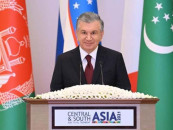Government crafts strategy to subdue budget opposition
PPP takes its allies on board to handle budget debate.

Government crafts strategy to subdue budget opposition
In a bid to pre-empt what is likely to become a contentious budget debate in the face of an increasingly hostile opposition, the government is making an attempt to form a common front with its coalition allies in order to restrain them from making anti-budget speeches on the assembly floor.
The government plans to propose economically necessary but politically unpopular measures in the budget for the fiscal year ending June 30, 2012. In the past, the government has been irked by speeches against its budget proposals by its ostensible coalition ally, the Muttahida Qaumi Movement (MQM).
Already weakened and unpopular, the government has taken a further hit to its credibility in the aftermath of the US raid on Abbottabad on May 2 that killed al Qaeda chief Osama bin Laden. The ruling Pakistan Peoples Party is determined this time around to ensure that the government is able to present a united front on the budget.
A meeting was held at the finance ministries headquarters in Islamabad on Thursday to lay out the ruling coalition’s strategy and included representatives from the government’s allies, the MQM, the Pakistan Muslim-League Quaid and the Awami National Party.
According to sources familiar with the matter, the government has formed three groups with representation from each of its allies, to formulate a strategy by Saturday.
The government plans to present the money bill in Parliament on May 28, a week earlier than usual. The government has allocated at least three weeks to debate the budget proposal, in anticipation of stiff resistance to many of its proposals.
Among the criticisms the government expects are its decision to freeze government employees’ salaries for the next fiscal year at current levels and reduce the amount allocated towards subsidies.
A Pakistani delegation is currently holding talks with the International Monetary Fund (IMF) to get the Washington-based lender’s initial input on the budget. The delegation is expected to return on May 18.
The IMF suspended an $11.3 billion bailout programme after the government had failed to implement several promised fiscal reforms last year. The government seems keen to get the programme reinstated by implementing man of those reforms, including reducing the levels of subsidies.
Published in The Express Tribune, May 13th, 2011.



















COMMENTS
Comments are moderated and generally will be posted if they are on-topic and not abusive.
For more information, please see our Comments FAQ